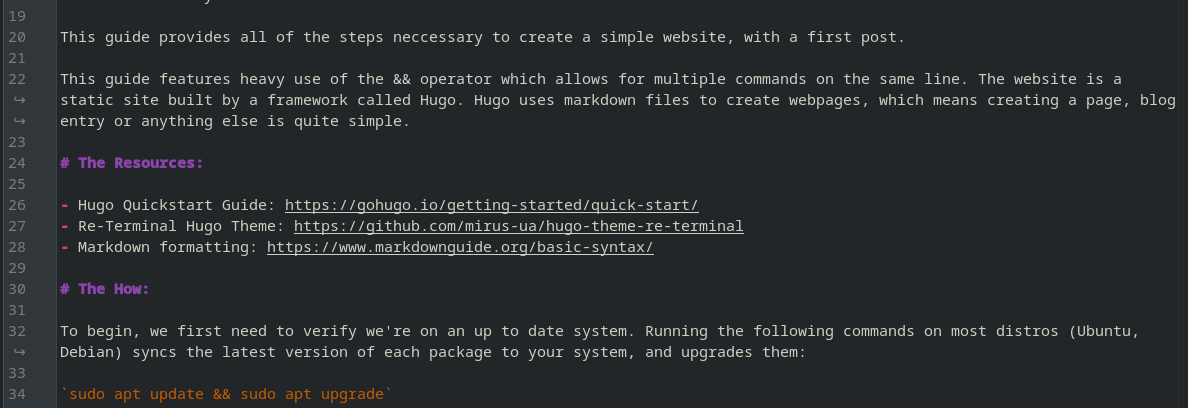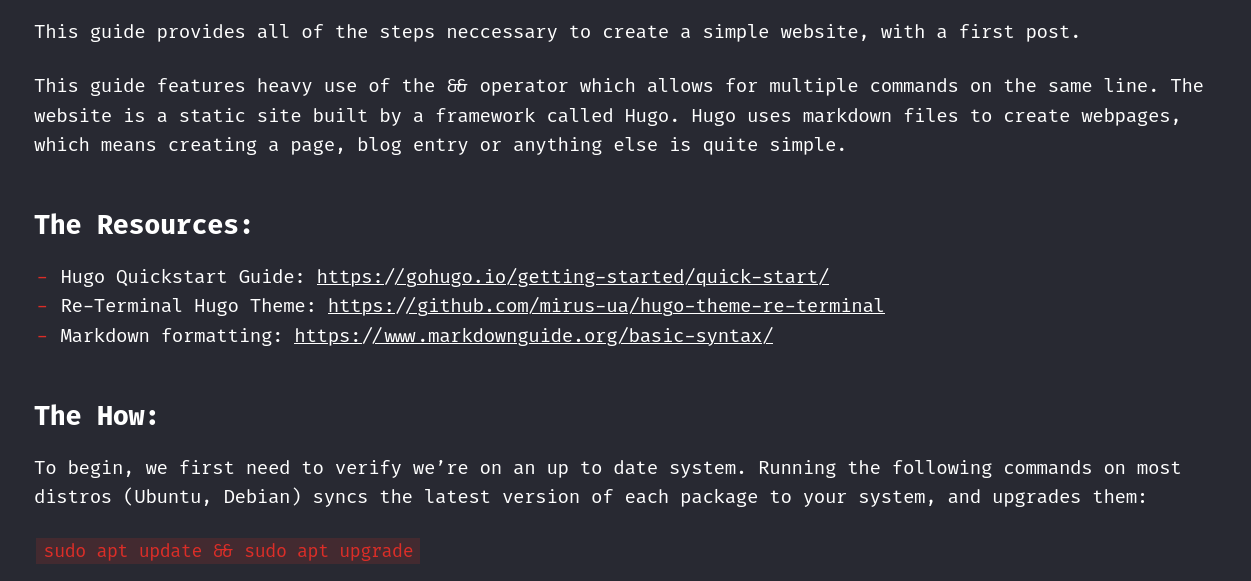Can I write a blog/article/guide?
If you’ve got a cool project you’re working on, or want to share something interesting you’ve learnt, the Swinux blog is the perfect way to do it. We will generally accept all posts so long as they contribute to one of the main focuses of the club:
-
Linux: This is everything Linux, including distros, ricing, packages, kernel contributions etc.
-
Hardware: This is everything PC parts, modification of game consoles, arduinos etc.
-
Code: This encompasses everything software, from CI/CD deployments, kernel modifications to what you learnt running/creating XYZ program, etc.
What do I use to write it?⌗
Writing a blog is straightforward. We use Hugo, which makes the formatting easily accessible to a wide range of people. Hugo uses markdown as a formatting mechanism for articles. To create a markdown file, you can replace a .txt file with .md. For example, if I had ‘helloworld.txt’ I would replace it with ‘helloworld.md’ to make it markdown compatible.
There are a variety of tools markdown provides, for example creating headings, lists and links. You can see an exhaustive list of aspects here. Below is a code section of Setting Up The Swinux Website and what it’s rendered output will look like.
This is the markdown file containing a snippet of the article.

You can see what it looks like when Hugo formats the page.

How do I write a blog/article/guide?⌗
It’s up to you. You would have read a forum post or news article before, and found that it is really good at conveying meaning and the author’s message. Conversely, you would have seen ways articles are written which didn’t appeal to you (perhaps even this article!).
Generally, if you are writing a guide, you want four major categories:
-
The Basics: Distill everything down into a couple of sentences, to inform the reader if this article is something they’d like to read.
-
The Resources: What resources did you consult for the project. What resources did you wish you had when learning about it? These can be online articles, physical books, stackoverflow pages etc.
-
The How: How did you go about the project, what steps can someone reading take to recreate what you’ve done? What things caught you out while learning, and how would you recommend someone to avoid them?
-
The Learning: What did you learn doing this project, and what avenues does it open up to learn in the future?
In terms of articles or blogs, there isn’t any one way to go about it. Like with guides, it’s up to you to decide what the best way to communicate to the user is. You’ll find ways to improve what you’ve written, make things more clear and add some spice. As with everything it’s a continual learning process and any effort is better than none!
What can’t I write about?⌗
Every article should reflect one of the three categories above, although there is significant leeway in what you can write about. Likewise, as a Swinburne Student Association club, we have to abide by their code of conduct. This will not matter for the most part, but please keep it in mind.